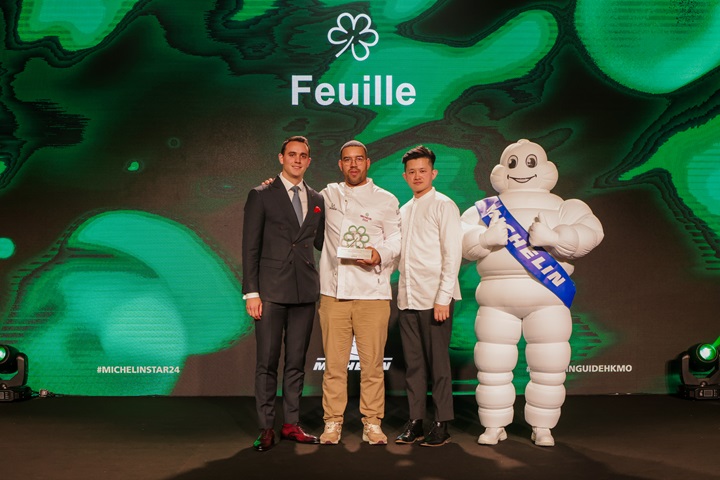"Many restaurants turn a cold shoulder once we explain our supply process," notes Chunling Fong, the founder of Farmhouse Productions, on her experience dealing with restaurants.
Fong's supply process, which differs from what most restaurants are accustomed to, raises a few eyebrows. First, she cannot guarantee a stable and consistent supply of the same ingredients over time, and she can only finalise the ingredient list a week in advance. The supply list sometimes changes even a day before delivery. According to Fong, most Hong Kong restaurants expect year-round access to any ingredient, and her unpredictable supply deters many chefs.
There is a reason for the instability. Located in Kam Tin, Farmhouse Productions was founded three years ago, and Fong implements regenerative agriculture practices. By increasing the organic compound in the soil to improve its fertility, the farm aims to grow more delicious and nutritious plants.
This means the farm operates without using chemicals or pesticides, focusing on growing with nature. That is, once encountering intense heat, crop yields decrease. One year, the rainy season came early, leading to no harvesting of any lychees. Collaborating with Fong requires constant contact to learn of the status of the ingredients and be prepared to adapt the menu to accommodate the changes in supply.

Feuille – Among the 0.5% collaborative restaurants in Hong Kong
The unstable supply chain puts chefs under a lot of pressure. Among the restaurants Fong has reached out to, about 99.5% do not support the farm, but every cloud has a silver lining. The remaining 0.5% are eager to follow her practices and bring sustainability to the next level. With this said, Feullie, the newly-awarded 1-Star restaurant and Green Star restaurant in Hong Kong is one of them.Located in Central, Feuille is under the helm of chef David Toutain, who owns a two-MICHELIN-Starred restaurant in Paris. Born in Normandy, France, Toutain champions social responsibility in the food and beverage industry. He has supported the use of local ingredients for years, and his Paris restaurant has been a Green Star awardee since 2020.
RELATED: What is a MICHELIN Green Star?

With this goal in mind, Feuille embraces sustainable cooking and works closely with the local agricultural industry. To this end, Toutain has hired chef Joris Rousseau, who shares the concept of sustainability, as the restaurant's executive chef. Great minds think alike. The Paris-born chef was exposed to gardening with his parents at his childhood home in Chambon-la-Forêt, a commune in the Loiret department in north-central France. The early gardening experience sparked his interest in agriculture. Additionally, he has worked under celebrity chefs Guy Martin and Yannick Alléno and has developed solid cooking skills and experience under his belt.
RELATED: 8 Hotels in Hong Kong & Macau with Sustainable Initiatives

Toutain and Rousseau visited Hong Kong and looked for food suppliers before establishing Feuille. During their visits, they carried out a site inspection at Farmhouse Productions. Rousseau recalls being amazed by the variety of ingredients grown on the farm, but what impressed him most was how passionate Fong was about her business and how dedicated her team was. With that experience in mind and recommendation from other chefs, Feuille and Farmhouse Productions started collaborating half a year ago. (Left Photo: Rousseau's farm visit. ©Feuille)
Fong's supply is unstable. As a result, she contacts Rousseau several times a week to keep the chef posted on the latest information on the available ingredients. Compared with a machine-like Q&A relationship with some other suppliers, Rousseau enjoys staying in touch closely with Fong and appreciates the feeling of working together towards the same goal.

Adjusting the Menu According to the Ingredients
Rousseau is no stranger to the ever-changing supply of ingredients when working in France. Conversely, it takes his team time to adapt to the constant change. In this regard, Toutain encourages the team to keep an open mind, while Rousseau also reminds them that they are chefs of tomorrow who need experiences today.At the same time, Rousseau does some planning to make the creative process smoother such as a calendar of seasonal ingredients. For instance, as beetroots are usually available from December to April, he plans recipes in advance, such as making beetroot juice and fermenting the skin. When the ingredients arrive, there are rules to follow and so the operation becomes systematic and smooth.
Rousseau conducts experiments with the team, showing them that working with local food suppliers is worthwhile. "We once used a giant radish of one kilogram from a commercial farm and Fong's radish of the same weight to make juice. The former had no taste, but Fong's was sweeter. The difference was obvious. When the team tasted it, they understood the value," shares Rousseau.
RELATED: How to Minimise Food Waste at Home, According to MICHELIN Green Star Restaurant Chefs

Farmhouse Productions supplies beetroots, radishes, strawberries, pumpkins, cucumbers, and coriander for the restaurant. The menu of Feuille features dishes that use local ingredients, too, such as the Tomato - Prawn – Coriander. (Right Photo: ©Feuille)
For the dish, two types of tomatoes are used. Large tomatoes are peeled, and the tomato flesh is cooked with onion vinegar, and ginger. The seeds, which Rousseau describes as "tomato caviar," are seasoned with coriander vinegar jelly and a bit of salt. Peeled cherries are marinated with coriander oil and coriander vinegar. The shrimp is smoked with vanilla, minced into paste, and placed on the bottom. Finished with almond milk and shrimp shell powder on top, the dish is full of the umami flavour.

Another dish, the Green Pea - Scallops - Fig Leaf (Left Photo: ©Feuille), showcases the distinct flavour of the South China Sea scallops. The flavour is enhanced by adding cream and egg white to create a quenelle-like smooth scallop purée. The dish is further elevated with trout roe and a medley of seasonal vegetables, including cucumbers, green peas, and potatoes. The sauce, a delightful blend of fish stock, butter, and white wine, is simmered to perfection, intensifying the taste of the seasonal vegetables.
The menu at Feuille is conceived in four sections: Grains & Seeds; Leaves, Stems & Roots; Flowers & Fruits; and Origins — which represent the cycles of life in nature.

The restaurant is committed to zero-waste practices, too. It utilises every part of the ingredients to minimise food waste. For instance, coriander stems are transformed into coriander vinegar to make jelly. The team also makes shrimp shell powder from roasted shrimp shells, creating a rich shrimp aroma. Currently, the restaurant offers a single menu to ensure precise ingredient control, further reducing food waste.
RELATED: Ingredient: Coriander
Challenges in Collaboration
This alliance encompasses challenges, too. Feuille and Farmhouse Productions are in the same boat, whatever challenges hit. One of the biggest hurdles is when the farm experiences a supply shortage due to adverse weather. In such situations, Rousseau turns to the Vegetable Marketing Organization or imports ingredients from other regions such as Japan, Taiwan, and France. These measures sustain the operations and serve as backup plans, ensuring Feuille’s continued use of local ingredients.

Rousseau credits the farm's contribution to the restaurant's MICHELIN Green Star.
"Fong came for dinner one evening, and I couldn't help but introduce her to the diners. I told our customers, 'If you love the food tonight, it's all because of her.' She is the star here," says Rousseau.
Fong responds humbly: "I don't have a saviour complex, and I'm not a climate activist. I run the farm just because I like to eat, and I hope the food I grow contains authentic flavours."
Through cooperation with Fong, Rousseau's views on fine dining have also changed. "High-end dining is no longer about truffles and caviar, but about tasting the authentic flavours of vegetables and fishes. Fong's ingredients are limited, and in this sense, that is truly high-end," he notes.
Speaking of the future, Feuille and Farmhouse Productions plan to collaborate further. "My mother is from the Caribbean, and I love the local Piment Vegetarian Pepper. Its spiciness is unique. I have given the seeds to Fong, and we will wait for the harvest together," shares Rousseau with anticipation.
RELATED: Small Great Things: The MICHELIN Green Star Restaurant Championing Sustainability with a Bean
Hero image by Mandy Li.
The article is written by Mandy Li and translated by Vivianna Cheong. Read the original article here.



















